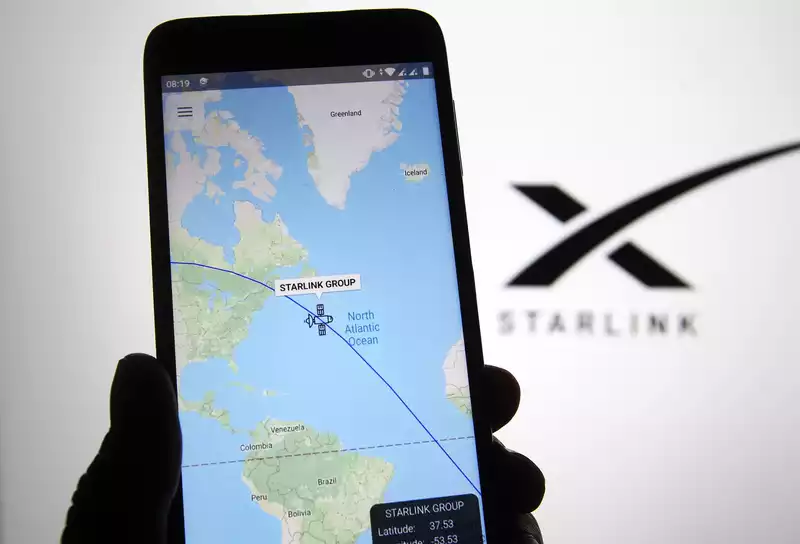When it comes to satellite Internet, new speed test data shows that Elon Musk's Starlink is far ahead of its competitors.
The speed test numbers are from Ookla. According to their analysis, Starlink's average download speed is five times faster than HughesNet, a long-time satellite Internet provider. Starlink also beats Viasat, another satellite Internet company that has been around since the 1980s, by a similar margin. Starlink's speeds are gradually approaching those of traditional broadband, but it still lags behind in terms of latency.
Starlink's average download speed is 97 Mbps, well above HughesNet and Viasat's 19.73 Mbps and 18.13 Mbps, respectively; upload speeds via Starlink are also good, averaging about 14 Mbps, which is only 2-4 Mbps faster than HughesNet and Starlink's latency may appear slow at 45 ms, but it is much slower than HughesNet's 724 ms and Viasat's 630 ms. Both HughesNet and Viasat are too slow to be used for online games. Both HughesNet and Viasat are simply too slow to be used for online gaming; the lag is simply too great.
Unfortunately for fans of Elon Musk, Starlink still can't match traditional fixed broadband speeds. On average, fixed broadband download speeds are 115 Mbps, uploads are 17.18 Mbps, and latency is 35 ms.
Still, Starlink owners should be pleased with the latest results. Current download speeds are up significantly from the Q1 2021 average of 65.72. As SpaceX continues to launch more satellites into low Earth orbit (LEO), the network appears to be getting stronger.
Because LEO satellites are closer to Earth, the distance required to send and receive signals is physically shorter. Starlink's Internet constellation floats between 550 and 1200 km above the Earth; HughesNet and Viasat use "geostationary orbits" 35,000 km above. This allows both companies to serve larger areas with fewer satellites, but at a reduced speed.
For U.S. customers, the difference between the fastest and slowest counties is somewhat significant. In Morgan County, Alabama, the median download speed was 168.30 Mbps. In contrast, the median in Madison County, Indiana, was 64.51 Mbps; even with a 100 Mbps difference, Madison County residents still maintained speeds well above the FCC's benchmark performance measure of 25 Mbps. [Interestingly, Starlink's median download speed was much faster than UK fixed broadband. However, latency lagged behind Starlink at 37 ms compared to 15 ms. For those living in rural villages and towns, it may be worthwhile to use Starlink, even if it costs an initial $500.










Comments